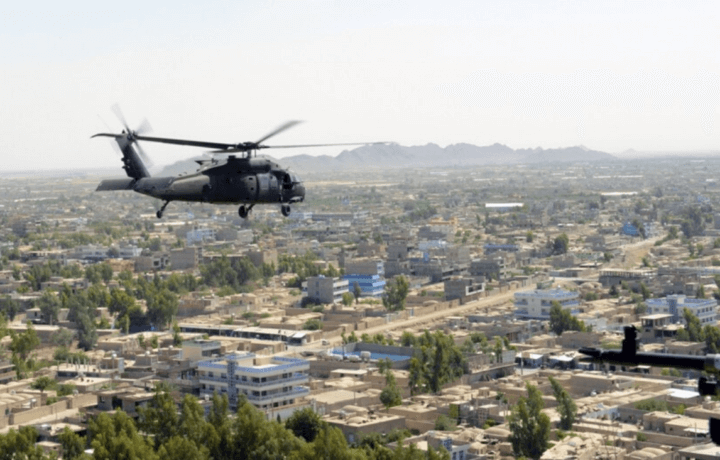Multiple media outlets, such as The NY Times, The Washington Post, and the Wall Street Journal are reporting on the existence of a lethal Russian Military Intelligence (GRU) program which targeted U.S. military personnel in Afghanistan via a bounty program. The program allegedly pays the individual/group within the Taliban who kills a U.S. military servicemember, a cash bounty. Media continues in their reporting that a number of U.S. servicemembers were killed as a result of this effort.
Russia denies such a bounty program exists
As can be expected, the Russian Federation has denied such a program exists. Of course, who admits to a covert action? Indeed, the Russian President Putin’s spokesperson, Dmitry Peskov was most succinct in an interview with an NBC reporter, “It’s 100 percent bullshit.”
Yet, Peskov then points to the tweets from the White House that such a program doesn’t exist, and he claims that he was never briefed on a program where Russians killed U.S. troops. The Russian government playbook on their covert action blowing up in their face is the same as it was during the Skripal attack. Deny everything, and make counter-accusations.
Perhaps this is splitting hairs, as it wasn’t alleged Russians were killing U.S. troops or civilian personnel, it was alleged the GRU was inducing others to do the killing.
Semantic gymnastics?
GRU bounty program: Real or Fabricated?
It stands to reason that the GRU was looking for a means to pay the U.S. military back for wounds suffered elsewhere. The Russian military mercenary Wagner Group has been active in the Crimea, Syria, and Libya of late.
On February 7, 2018, approximately 30-40 U.S. Marines, Green Berets and Air Force combat controllers in Syria came under attack by T-72 and heavy artillery by Syrian troops with integrated Russia’s Wagner Group mercenaries. The U.S. military contacted their Russian counterparts in Syria during the first 15 mins (and prior) of the attack and were told that these units were not under the Russian military’s control or responsibility. The U.S. responded with F-22’s, F-15E’s, B-52’s, AC-130 gunships, and AH-64 Apache helicopters, and for the next three-four hours, the battle ensued. Russian media reported as many as 250 Wagner Group casualties were incurred that day. To this day, the official Russian line is that they were not involved in that battle.
Russia’s history of bounties for U.S. military personnel
Nor would this be the first time that Russia has used the inducement of a bounty in targeting U.S. military personnel. During the Vietnam conflict, the Russians were alleged to have offered to pay a bounty for U.S. pilots. While much controversy exists over whether or not the program resulted in U.S. POWs being shipped to Russia, no evidence beyond the claims of a high-ranking KGB defector exists that such occurred. What did occur is that in 1973, the North Vietnamese did allow the KGB officer Oleg Nechiporenko to interrogate a U.S. prisoner. The prisoner was identified as Eugene Andre Weaver, who was captured in the city of Hue on January 31, 1968 during the Tet Offensive.
Where there is smoke there is fire
We know from the revealed activities of the GRU in the United Kingdom and beyond that they are involved in lethal operations. From the 2018 botched attempt on the life of former Russian intelligence officer’s Sergei Skripal’s, to the attempted coup in Montenegro, it is firmly within the realm of the possible and probable that the allegation of the existence of a GRU bounty program holds water.
There has always been a layer of low intensity conflict between the two powers spanning many decades. The U.S. armed the Mujahideen in Afghanistan from 1979-1992 and provided other materiel support. It should have surprised no one within the U.S. intelligence and military communities to learn in early 2020 that the Russian’s were arming the Taliban.
Yet the allegation of Russia’s GRU paying bounties for the lives of U.S. servicemembers brings the level of conflict between the Russian Federation and the United States to a new level of heightened conflict. If proven true, the US-Russia bilateral relationship will be entering a new era of a very hostile bilateral relationship.




